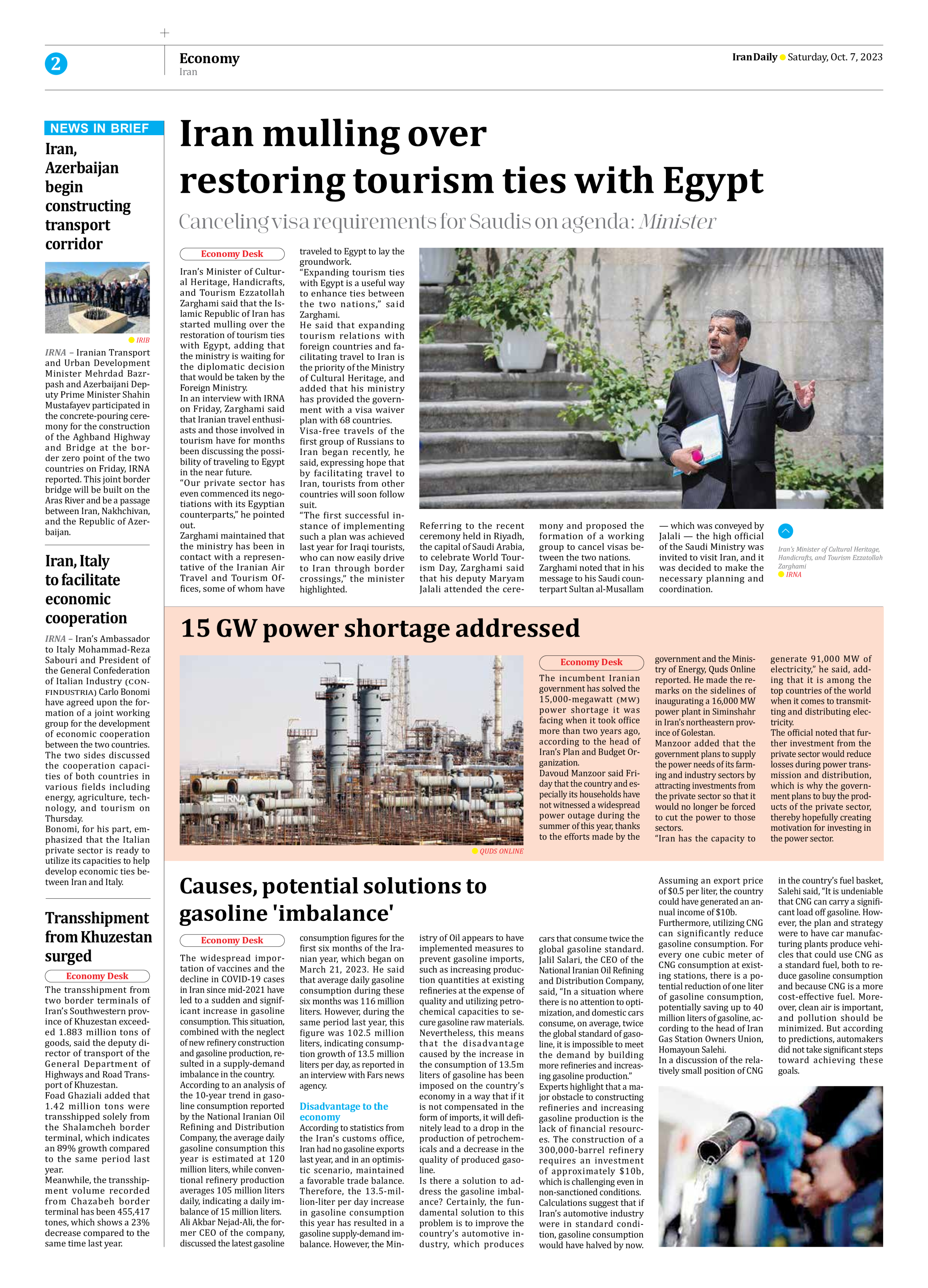
Causes, potential solutions to gasoline ’imbalance’
The widespread importation of vaccines and the decline in COVID-19 cases in Iran since mid-2021 have led to a sudden and significant increase in gasoline consumption. This situation, combined with the neglect of new refinery construction and gasoline production, resulted in a supply-demand imbalance in the country.
According to an analysis of the 10-year trend in gasoline consumption reported by the National Iranian Oil Refining and Distribution Company, the average daily gasoline consumption this year is estimated at 120 million liters, while conventional refinery production averages 105 million liters daily, indicating a daily imbalance of 15 million liters.
Ali Akbar Nejad-Ali, the former CEO of the company, discussed the latest gasoline consumption figures for the first six months of the Iranian year, which began on March 21, 2023. He said that average daily gasoline consumption during these six months was 116 million liters. However, during the same period last year, this figure was 102.5 million liters, indicating consumption growth of 13.5 million liters per day, as reported in an interview with Fars news agency.
Disadvantage to the economy
According to statistics from the Iran’s customs office, Iran had no gasoline exports last year, and in an optimistic scenario, maintained a favorable trade balance. Therefore, the 13.5-million-liter per day increase in gasoline consumption this year has resulted in a gasoline supply-demand imbalance. However, the Ministry of Oil appears to have implemented measures to prevent gasoline imports, such as increasing production quantities at existing refineries at the expense of quality and utilizing petrochemical capacities to secure gasoline raw materials.
Nevertheless, this means that the disadvantage caused by the increase in the consumption of 13.5m liters of gasoline has been imposed on the country’s economy in a way that if it is not compensated in the form of imports, it will definitely lead to a drop in the production of petrochemicals and a decrease in the quality of produced gasoline.
Is there a solution to address the gasoline imbalance? Certainly, the fundamental solution to this problem is to improve the country’s automotive industry, which produces cars that consume twice the global gasoline standard. Jalil Salari, the CEO of the National Iranian Oil Refining and Distribution Company, said, “In a situation where there is no attention to optimization, and domestic cars consume, on average, twice the global standard of gasoline, it is impossible to meet the demand by building more refineries and increasing gasoline production.”
Experts highlight that a major obstacle to constructing refineries and increasing gasoline production is the lack of financial resources. The construction of a 300,000-barrel refinery requires an investment of approximately $10b, which is challenging even in non-sanctioned conditions.
Calculations suggest that if Iran’s automotive industry were in standard condition, gasoline consumption would have halved by now. Assuming an export price of $0.5 per liter, the country could have generated an annual income of $10b.
Furthermore, utilizing CNG can significantly reduce gasoline consumption. For every one cubic meter of CNG consumption at existing stations, there is a potential reduction of one liter of gasoline consumption, potentially saving up to 40 million liters of gasoline, according to the head of Iran Gas Station Owners Union, Homayoun Salehi.
In a discussion of the relatively small position of CNG in the country’s fuel basket, Salehi said, “It is undeniable that CNG can carry a significant load off gasoline. However, the plan and strategy were to have car manufacturing plants produce vehicles that could use CNG as a standard fuel, both to reduce gasoline consumption and because CNG is a more cost-effective fuel. Moreover, clean air is important, and pollution should be minimized. But according to predictions, automakers did not take significant steps toward achieving these
goals.







